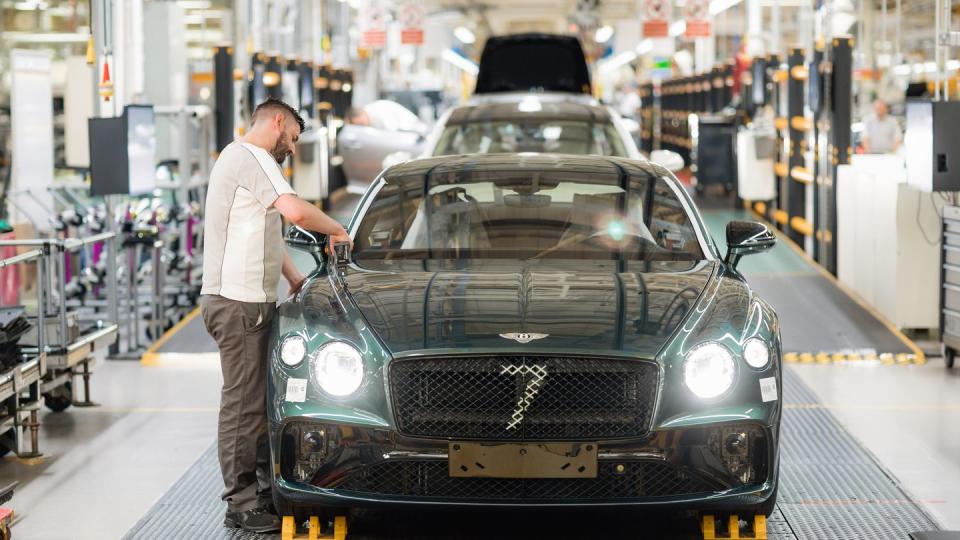Bentley Rows Back on End of Internal Combustion

Bentley was one of the first established automakers to commit to a fully electric future, telling the world in 2020 that it intended to built its last combustion engine in 2030. From that point onwards, the plan was for all Bentley models to be full EVs.
As suggested by the tense of that last sentence, that now seems to be changing. Bentley’s CEO, Adrian Hallmark, told journalists that the 2030 deadline should no longer be regarded as hard and fast. “We may drag it out a bit longer,” he said, on an embargo'd conference call on Friday discussing the company’s financial results, “but not to 2035 or 2040, just for a couple more years.”
This is, and we hate to say this, what we told you to expect. In February of 2023 we noted that "the numbers aren't adding up"for automakers' EV pledges to hold fast. EV adoption rates have been amazing, but simply not strong enough for legacy OEMs to walk away from a significant, significant portion of their business. We are still simply buying too many gas-burning cars for car companies to act on their own and dump 68 to 75% or more of their product line, and that's going off of fairly rosy predictions for market penetration of all-electric cars.
Even if new Bentleys will not all be fully electric in 2030, they will at least be electrified - from 2026 onwards the commitment remains that only hybridized models will be offered, with a range of plug-ins. Mid-life facelifts for the Flying Spur and Continental will see the arrival of what Hallmark described as “high performance hybrids” which - although not confirmed yet - we presume will be upgraded to V-8 power. The 729 hp Porsche Cayenne Turbo S E-Hybrid - which sits on the same platform as the Bentley Bentayga - gives a good indication of the power outputs that can be delivered by this next-generation VW Group powertrain.
Hallmark said that Bentley believes high-output hybrids are a “credible interim technology, but that “there is no question that [EVs] are where we will head in the mid-term.” He also said that Bentley’s first full electric model, which will be an addition to the range rather than a direct replacement for an existing car, will now go into production in 2026 - a year later than originally planned.
Even as it looks towards a slightly delayed electric future, Bentley’s present is still full of success. The company delivered 13,560 cars in 2023, a fall of 1614 over the record-breaking previous year, but still the third highest total ever. Hallmark says the Bentley booked a €589m operating profit, the second-best in the company’s history and a 20.1 percent margin that mainstream OEMs can only dream about. To no surprise, the Bentayga remains the best-selling Bentley model globally, responsible for 44 percent of sales, with the Continental GT coupe and GT Convertible making up 31 percent and the Flying Spur sedan 25 percent.
Despite the sales numbers, Bentley buyers also seem to be chasing greater exclusivity, with three-quarters of the cars delivered in 2023 featuring some level of personalized optioning from the company’s Mulliner division. Life for the 0.1 percent seems to be going swimmingly.
You Might Also Like

 Yahoo Autos
Yahoo Autos 